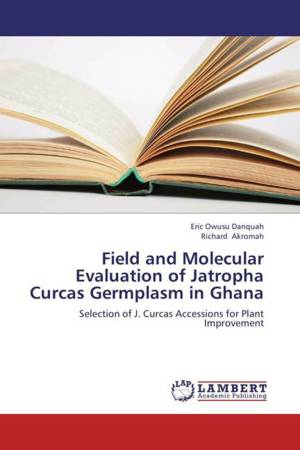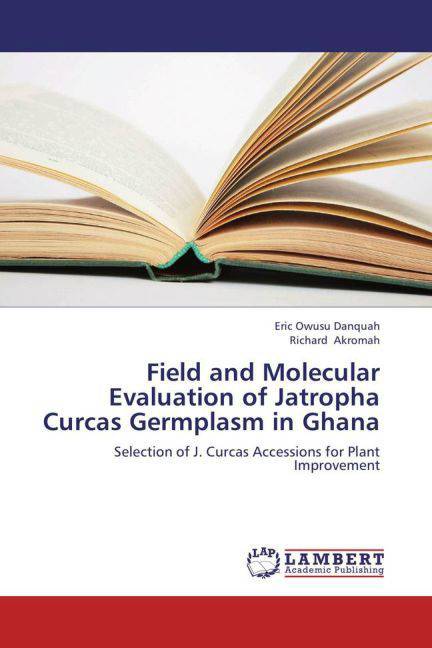
Bedankt voor het vertrouwen het afgelopen jaar! Om jou te bedanken bieden we GRATIS verzending (in België) aan op alles gedurende de hele maand januari.
- Afhalen na 1 uur in een winkel met voorraad
- In januari gratis thuislevering in België
- Ruim aanbod met 7 miljoen producten
Bedankt voor het vertrouwen het afgelopen jaar! Om jou te bedanken bieden we GRATIS verzending (in België) aan op alles gedurende de hele maand januari.
- Afhalen na 1 uur in een winkel met voorraad
- In januari gratis thuislevering in België
- Ruim aanbod met 7 miljoen producten
Zoeken
Field and Molecular Evaluation of Jatropha Curcas Germplasm in Ghana
Selection of J. Curcas Accessions for Plant Improvement
Eric Owusu Danquah, Richard Akromah
Paperback | Engels
€ 79,45
+ 158 punten
Omschrijving
Jatropha curcas (L) production as a potential source of alternative fuel has gain popularity in Ghana. The government is collaborating with the private sector to develop about one (1) million hectares of Jatropha plantation throughout the country in the next 5-6 years. The questions left unanswered are: why will farmers grow Jatropha? What knowledge do farmers have about the plant? Where will the farmers source quality planting material? It is likely farmers might have practical knowledge of the use of the plant which will be vital to researchers. Also it likely there are variations in the local germplasm which can be used as a basis for improvement. The main objective of the study was to determine if there are variations or otherwise in J. curcas accessions collected from 10 regions of Ghana and to identify promising accessions for future genetic improvement work.
Specificaties
Betrokkenen
- Auteur(s):
- Uitgeverij:
Inhoud
- Aantal bladzijden:
- 136
- Taal:
- Engels
Eigenschappen
- Productcode (EAN):
- 9783659330353
- Verschijningsdatum:
- 29/01/2013
- Uitvoering:
- Paperback
- Afmetingen:
- 150 mm x 220 mm
- Gewicht:
- 209 g

Alleen bij Standaard Boekhandel
+ 158 punten op je klantenkaart van Standaard Boekhandel
Beoordelingen
We publiceren alleen reviews die voldoen aan de voorwaarden voor reviews. Bekijk onze voorwaarden voor reviews.









